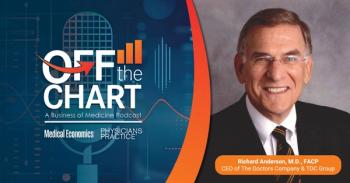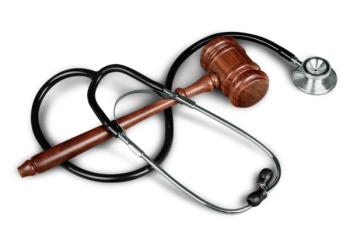
In Medicine, Honesty Is the Best Policy
Admitting mistakes as a physician is never easy, but providing patients with the truth is part of a physician's job.
National Public Radio (NPR) recently had a
Of course, the quote is untrue. To determine that all maternal mortality is due to medical error affords the healthcare profession much more control than it actually has. Anyone who has ever cared for a patient knows that despite best efforts, good intentions, and exceptional medical care, patients do die or fail to heal. That is because physicians are not gods and medicine is not an exact science. I always suspected my patients were more accepting of this than I was. Like most physicians, I find it difficult to admit I cannot control everything.
The quote is also harmful to patients. Many years ago, I had a patient who presented with aggressive, advanced breast cancer following a misread of a mammogram. Due to a perceived inadequate response by the radiologist and the hospital, she pursued a malpractice claim. Simultaneous with undergoing cancer treatment, she was involved in litigation to prove negligence. I thought her case was pretty solid, but she struggled when a medical expert could not conclude that her cancer was worse than it would've been if the mammogram was read correctly. This felt like an attack on her personally – as if her cancer was not bad enough to warrant consideration that something should've been done differently.
I've often thought about her as I consider true medical error. The burden of an error or perceived error is held jointly by the physician and the patient. In addition to suffering, a patient who suspects that it was caused by a medical error carries the added weight of a special form of grief comprised of "if only" and "what if."
I am fully in favor of disclosure to patients. Unfortunately, I have had to confess errors to my own patients. It is humbling and painful. For someone who is committed to helping and healing to both be aware of and own a harmful error is difficult. However, it is absolutely the right thing to do – confess, apologize, and make restitution. I believe honesty can help a patient who is struggling with an unexpected outcome.
However, as physicians, we need to be reasonably sure of what we confess or conjecture. I had an elderly woman in my practice who lost her husband to cancer. During his last days, a hospice nurse made an offhand comment about how a symptom he had could've been an early sign of cancer. Not only was it untrue, but it compounded my patient's grief about the loss of her husband which transformed from a tragic disease to a possible delay in diagnosis.
Let us as physicians own, admit, and rectify our errors. At the same time, we need to be honest about our errors and limitations. Not every bad outcome is due to an error.
Newsletter
Optimize your practice with the Physicians Practice newsletter, offering management pearls, leadership tips, and business strategies tailored for practice administrators and physicians of any specialty.






